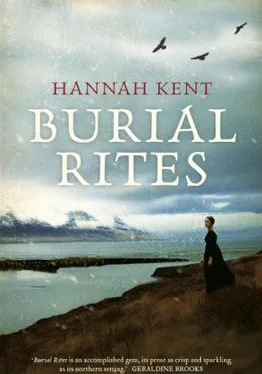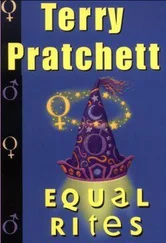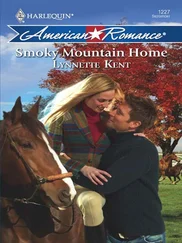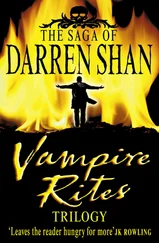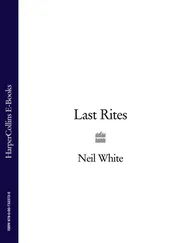Agnes fell silent, and knitted furiously. Tóti noticed that Lauga and Gudmundur were exchanging small, furtive glances. There were several moments of uncomfortable silence, broken only by the click of knitting needles, and a muffled giggle from Kristín. Eventually, as the wind gathered force outside, Jón stood and suggested they go to sleep. Tóti, suddenly weary, took the offer of a spare bed. A malaise had crept over him while Agnes had told of Natan, and his throat felt tight and painful. As the lamp was extinguished, he wondered if he was right in letting her speak.

SOMETIMES, AFTER TALKING TO THE Reverend, my mouth aches. My tongue feels so tired; it slumps in my mouth like a dead bird, all damp feathers, in between the stones of my teeth.
What did I say to him? What did the others make of what I said? It doesn’t matter. No one could understand what it was like to know Natan. In those early visits it was as though we were building something sacred. We’d place words carefully together, piling them upon one another, leaving no spaces. We each created towers, two beacons, the like of which are built along roads to guide the way when the weather comes down. We saw one another through the fog, the suffocating repetition of life.
At Geitaskard we walked in the evenings upon the snow, and it squeaked under our tread. Once, when I slipped on the ice, I grasped his arm and he lost his balance. We fell together, laughing, and on the ground he pushed me back so that we gazed up at the hazard of stars above us. He named the constellations for me.
‘Do you think that’s where we go when we die?’ I asked.
‘I don’t believe in heaven,’ Natan said.
I was shocked. ‘How can you not believe in heaven?’
‘It’s a lie. Man has created God out of fear of dying.’
‘How can you say such a thing?’
He turned his head, ice crystals caught in his hair. ‘Agnes. Don’t pretend you disagree. This is all there is and you know it. Life, here, in our veins. There is the snow, and the sky, and the stars and the things they tell us, and that’s all. Everyone else — they’re blind. They don’t know if they’re living or dead.’
‘They’re not so bad.’
‘Agnes. You pretend you don’t understand me, but you do. We’re the same kind.’ Natan propped himself up on his elbows and the moonlight poured over his face. ‘We’re better than this.’ He nodded towards the farmhouse. ‘This life of mud and struggle. Accepting everything as it is.’ He leaned closer and then he kissed me, gently. ‘You don’t belong in this valley, Agnes. You’re different. You’re not scared of everything.’
I laughed. ‘I’m certainly not scared of you.’
Natan smiled. ‘I’ve got a question for you.’
My heart throbbed. ‘Oh yes? What’s that?’
He lay back down on the snow. ‘What’s the name for the space between stars?’
‘No such name.’
‘Make one up.’
I thought about it. ‘The soul asylum.’
‘That’s another way of saying heaven, Agnes.’
‘No, Natan. It’s not.’
It was only later that I suffocated under the weight of his arguments, and his darker thoughts articulated. It was only later that our tongues produced landslides, that we became caught in the cracks between what we said and what we meant, until we could not find each other, did not trust the words in our own mouths.
That night we went to the cowshed. I filled the hollow of his hands with my mouth, my breasts; I met his body against my own. His hands bunched the cloth of my skirt and lifted it up, and I felt the cool air address my skin. I was worried we would be discovered; worried they would call me a whore. Then there was the first touch of skin on skin, and that was the gunshot, the freefall. The bands of my stockings were loose about my knees as the softness of his hair caressed my neck.
I craved his weight, then. I craved the breath of him: the quickening inhalation and the warm pressure of his mouth. His smell, the slippery buck of his body, he was nothing like the others. I arched my neck until my face was wet with the drifting damp. I could feel him, the heat of him, the very quick of him. He groaned and the sound lingered in the air like a cloud of ash over a volcano.
I wanted to weep afterwards. It was too real. I felt too much to see it for what it was.
Natan smiled as he tucked his shirt in. His tousled hair was lit at the ends with tiny drops of water. He smoothed my cheek, asked me if he’d hurt me, if I had bled. Laughed when I told him no. Was he relieved? Annoyed?
‘You don’t have to go so soon.’
‘Get up out of the straw, Agnes. Go to bed.’
‘Will you come back?’
He came back. He returned to me again and again throughout that long winter. There were nights shivering in the powdery snow and evenings in the cowshed while the others slept. And though the snow smothered the valley and the milk froze in the dairy, my soul thawed. A fire raged in the wake of his lips, while the wind shrieked outside. When everything froze we met in the storeroom, with a constellation of drying meat above our heads. The smell of straw soaked us in the perfume of summer. I remember feeling too full with blood. The famous Natan Ketilsson, a man who could bleed the sap of sickness from the limbs of the ill, who had been with the famous Poet-Rósa, who had heard the bells of Copenhagen, and taught himself Latin — an extraordinary man, a saga man — had chosen me. For the first time in my life, someone saw me, and I loved him because he made me feel I was enough.
To think of how I slid my hand in through the folds of my skirt to find and press the bruises he left there, feeling the start of pain across my skin. Bruises as echoes of his touch, proof of his hands on mine, his hips against mine: the exultant exhalation, the clamber of our limbs in the dark. Throughout a dull-eyed cycle of work, nights slept alone, waking to nothing but chores, chores, those hidden bruises suggested something more — an end to the stifling ordinariness of existence.
I hated it when they faded. They were all I had of his to keep for myself until he came again. All those weeks, all those nights, I was rotted through with hunger. In the cowshed, my head hard against the floor, Natan broke the very yolk of my soul. I concealed my true feelings from the servants. All that willpower to contain that which I wanted to cry into the wind, and scratch into the dirt, and burn into the grass.
We had agreed that I would come live with him. He would haul me out of the valley, out of the husk of my miserable, loveless life, and everything would be new. He would give me springtime.
And all that while, there was Sigga.
Handar-vagna-Freyjum fljóð
Flytur sagnir ljóða.
Kennd við Magnús, blessað blóð ,
Búrfells-Agnes góða.
Leading the way for women
A poet, named for Magnús.
His blessed blood flows in her veins:
The good Búrfell-Agnes.
Anonymous, c. 1825.
‘HAVE YOU EVER BEEN TO Illugastadir, Reverend?’
Tóti shook his head. ‘I don’t have much need to travel north of Breidabólstadur.’
The next day had broken in the embrace of more wet and snowy weather, and Margrét had persuaded Tóti to delay his return home until the skies cleared. He was relieved. His dreams had been troubled, and he had woken with an aching head.
With the sheep rounded up, slaughter done, and the hay brought home, the household of Kornsá was spending the day indoors, attending to spinning, knitting and rope-making.
Читать дальше
